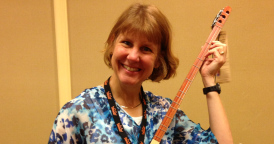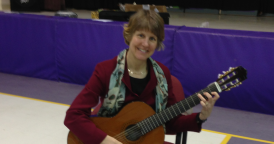There are no definite rules that determine when a child is ready to take musical instrument playing. A few guidelines may help in determining whether your child is ready for learning a musical instrument. If he can count from 1 to 10 without any difficulty and can recognize the letters in the alphabet from A to G, then he is probably ready for piano lessons for children. The child must be able to sit still for at least twenty minutes at a time. Children cannot be expected to sit still for prolonged periods, but five minute intervals would be a good start.
The involvement of the parent is needed for better progress in the lessons. The participation of the parent must be relative to the age of the child. This means that the younger the child, the more participation is needed from the parent. The parent can ask the piano teacher on how he or she can participate in the lessons. A parent can also ask for updates about the progress of the child in the sessions. Also, patience is needed because a child can be easily distracted and the child cannot be blamed.
Offer encouragement and support. Your child may not learn as quickly as you expected. Nevertheless, offer good feedback for his accomplishment. Refrain from giving negative criticism or punishment when he or she seems uncooperative. Constructive criticism and words of encouragement work better. Being able to play the musical instrument without the pressure of memorizing any notes makes it a fun learning experience for your child.
It has been proven that musical sessions help kids to perform better in their academics. Musical sessions help kids in mathematic subjects especially about fractions and ratios. Also, studies show that piano-playing improves learning abilities. In fact kids who played the piano scored higher in learning development tests.
Musical instrument sessions give children a sense of accomplishment and self-worth. Mastering a piece and playing before a crowd during recitals boosts self-esteem in kids. It encourages children to keep a positive attitude when faced with challenges. Aside from boosting self-confidence, instrument playing also teaches kids the value of patience, which helps them achieve their goals without getting discouraged.
The motor skills of a child are also improved by musical instrument playing. This develops the growth structure of a childs thinking abilities. This type of muscial instrument is more challenging than any other and therefore requires more complicated playing. With the piano, two hands are used simultaneously. What is more difficult is that, both hands do not necessarily have the same tempo.
Instrument sessions help kids to focus. A child can be somewhat inattentive and easily distracted. Playing the piano can train him to become more focused, especially when he is learning a new note or interpreting a new rhythm. Playing music trains children to think critically. Creative and critical thinking are essential skills that may help children cope better with the challenges of life as they grow older.
Musical instrument playing not only develop childrens values, but also their skills. Piano-playing is more than talent. It has life-long benefits. It does not matter if the child does not pursue piano playing. The thing that matters most is that the child, even for once, appreciated music and developed life-long skills they can use when they grow up.
If you’d like to learn more about playing the piano please visit – Children’s Piano Lessons
or, to find out about the best online piano course, read this – Review of Rocket Piano









